"King the Land": Im Yoon-ah & Lee Jun-ho are Charismatic
Plus reviews of "Absolute Boyfriend," "Do Do Sol Sol La La Sol" & "Cheese in the Trap"
Today’s newsletter includes reviews of the following relationship K-dramas:
• Absolute Boyfriend (절대 그이) | Yeo Jin-goo, Bang Min-ah | 2019 | ☆☆
• Cheese in the Trap (치즈 인 더 트랩) | Kim Go eun, Park Hae jin | 2016 | ☆☆☆½
• 📽️ Cheese in the Trap — The Movie (치즈 인 더 트랩) | Kim Go eun, Park Hae jin | 2018 | ☆☆
• Do Do Sol Sol La La Sol (도도솔솔라라솔) | Go Ara, Lee Jae-wook | 2020 | ☆☆½
• King the Land (킹더랜드) | Lee Jun-ho, Im Yoon-ah | 2023 | ☆☆☆
"King the Land"
☆☆☆☆
Goo Won (played by Lee Jun-ho)
Cheon Sa-rang (played by Im Yoon-ah)
↑Note: Korean names denote the surname followed by the given name.
You've seen the cold male chaebol/warm, hardworking female combo before in many popular K-dramas (including "Business Proposal" and "Oh My Venus"). But Im Yoon-ah and Lee Jun-ho are so charismatic and easy to watch in "King the Land" that they add a fresh touch to an old concept.
"King the Land" focuses on a woman whose dream is to work at a posh hotel in Seoul, and the righteous (but haughty) heir to one of South Korea's largest conglomerates. It is no spoiler to say that these two will eventually fall in love. We all know this going in. Still, we are left clutching our hearts at times when life doesn't appear to be going the way we hope for them.
Won's biggest nemesis is his older half sister Hwa-ran (Kim Seon-young), who sabotages him at every turn. She pretends that she is looking out for him when their father is present, but tells Won to his face that he needs to get out of the family business or she will destroy him. Instead of retaliating or, at the very least, tattling to his father, he accepts it as part of his fate. Won seems to believe what he says when he repeatedly tells his sister that he doesn't care about inheriting the business ... until he does.
I don't know. Hwa-ran may be older, but he is the son. He could've used the boy card with his chaebol father. To be fair, the father said he will leave his empire to whichever child does the best work and, gender aside, that person is Won. It's not just because he views his employees as actual human beings, but because his business sense is on point. He's able to raise profits without sacrificing people.
There are some odd moments in the series that are meant to be cute, but raise issues. For instance, Won gives Sa-rang and her two best friends a trip for leading their respective teams to the No. 1 position. However, their team members — who also worked their butts off to make all of that happen — aren't invited. This is not a good look for Won, who suggested this prize, or for the women who seem oblivious to the inequity.
As an aside, the Korean word sarang means love. And Sa-rang is full of love and optimism. Even when her colleagues trash her because she only graduated from a 2-year college instead of a 4-year university, she bites her tongue ... because she believes they are partially right. They tell her that they all graduated from universities in Seoul. How dare she assume she's equal to them. Though Sa-rang is grateful to be employed, she knows her background on paper is lacking.
This school snobbery has to be acknowledged because it's so ridiculous. There are 187 universities in Seoul and not of one of Sa-rang's colleagues graduated from the three best SKY schools that the fancy people in South Korea care about: Seoul National University, Korea University and Yonsei University. How do I know they didn't graduate from one of these elite institutions? Because if they had, these are the type of people who would mention it immediately.
Personally, I've put fellow Korean American ajummas in their place when they point out that my Korean accent is a little off or some other niggling bit of information that they feel the need to passively aggressively share with me. How? They always get around to asking what school I went to and I tell them. And then they shut up and move along. (FWIW: I don't care what school anyone graduated from. That degree isn't a badge of intelligence. It just means you were fortunate to get into a school (whether through brains, athletic skills or legacy ties), paid for it and didn't flunk out. Good for you. You're still not better than anyone else.)
There are some odd moments in the series that are meant to be cute, but raise issues. For instance, in episode 9, Won gives Sa-rang and her two best friends (who all work for the King corporation) a trip for leading their respective teams to the No. 1 position. However, their team members — who also worked their butts off to make all of that happen — aren't invited. This is clearly favoritism and not a good look for Won, who suggested this prize, or for the women who seem oblivious to the inequity.
There also are some aspects of the series that I didn't understand. For instance, Sa-rang earns fame for being the best concierge in the business for multiple years. Other hotels try to poach her. But even before she dons this French maid outfit (pictured above) to serve food at Won's father's private events, her job is just weird.
She was promoted to work in King the Land — the hotel's VIP high-roller lounge. But even there, her job primarily consisted of being a well-dressed server. She served coffee. She served meals. Very little about her job screamed I'm a concierge! Aside from pay, how is this a promotion? Why is this position so prestigious and coveted?
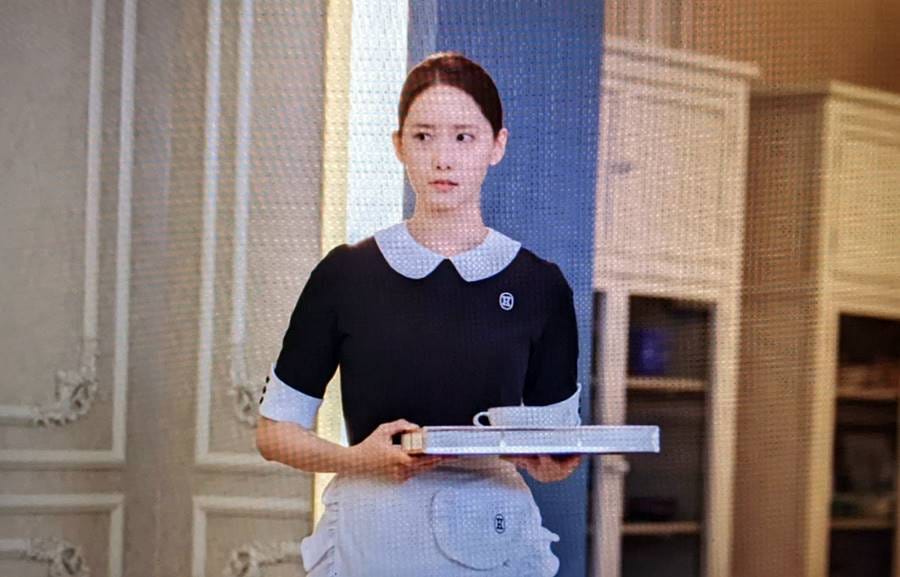
Her besties have their own subplots. One works at a retail store and has a bizarre marriage where she and her husband don't even seem to like each other. The other friend is hiding a secret that in the U.S. would be no big deal. I honestly don't think it would even be a big deal in South Korea. (I'll talk about this a bit more in the Spoiler Alert below.)
As for the ending, it's everything I had hoped for. Im looks beautiful in a wedding gown. And after the sad ending for her character in "Big Mouth," it was so nice to see Sa-rang get her happily ever after. But most importantly, she followed her own path, even though that meant separating from Won for a while. Both of them were secure enough in their relationship to not try to tie the other one down. And isn't that one of the most important things about love?
Shoe culture: One of the episodes depicted a scene where Sa-rang walks into a guest room that the head of housekeeping is cleaning. She has her shoes on and is reprimanded by the older woman, who says that she has disrespected the guest and their room by her discourteous action. I recently returned from a trip to Seoul and asked the front desk to send up a maintenance man to help me start the air conditioner. Don't you know that the first thing he did when he entered my room was take his shoes off! I was so surprised. This never happens in any western hotel I've ever been in. And, oh, there was nothing wrong with the air conditioner. I was activating the thermostat for the floor heater (!!!) and not the air conditioner! To quote Taylor Swift: it's me, I'm the problem, it's me.
Airdates: Sixteen hour-ish episodes aired on JTBC from June 17 through August 6, 2023. I watched this on Netflix.
Spoiler Alert: At one point, Sa-rang decides she will help Won find his mother, whose disappearance he is still haunted by. We will learn later that she was basically chased out of her husband's house, not by Won's father, but by his parents who thought she wasn't good enough for the family. But Won has already told Sa-rang that he no longer wants to find her and he's fine the way he is. Regardless of Sa-rang's good intentions, inserting herself into his private life — especially after he has said he doesn't want to search for his mother anymore — isn't something anyone should do. Being reunited with your mother is something very personal, and the ownership belongs to the child, not anyone else. It's his story to finish, not hers.
Everything is tied up in the final episode. Sa-rang's friend Da-eul (Kim Ga-eun) learns that her husband — who viewers are led to believe is cheating on her — actually quit his job, didn't tell her, and spent all his severance pay on ... himself. Never mind that they have a young child together. As for Da-eul, she spends more time with her friends than her family. This is not a good marriage, and their antagonistic relationship rubs off on their daughter, who sasses back to her father. It's not precocious and it's not cute. The little girl also judges people by their beauty and the adults just laugh it off.
When Sa-rang and Da-eul's other friend, flight attendant Pyung-hwa (Go Won-hee), introduces the child to her male colleague Ro-woon (Kim Jae-won), the little girl says he looks like a prince because he's handsome. But later, the kiddo implies that Won's best friend and aide Sang-sik (Ahn Se-ha) isn't a prince because he's not attractive. And all the adults think it's hysterical.
Pyung-hwa's secret is that she is divorced. A callous former boyfriend — now the pilot on almost all her flights — registered their brief marriage without her consent when she was drunk. (How???) When he reveals her secret, no one judges him for also being divorced. But the other flight attendants treat her as if she's a prostittute. Everyone except for Ro-woon, that is, who has fallen in love with Pyung-hwa. Their friendship and (finally) romance is one of the sweetest things about the show.
When Ro-woon unexpectedly takes her to meet his mother, she freaks out because she hadn't prepared herself. He gently tells her she looks beautiful and that his mother will love her just the way she is. And then they arrive at his mom's gravesite. This was a pivotal moment because he wanted the two most important women in his life to "meet." And this was his way of honoring both.
Though Sa-rang's grandmother initially gave Won a difficult time, she is pleased as punch that the two have committed to each other. She wants to make sure that no one looks down on her granddaughter for not coming from a wealthy family. The grandmother gives her several savings books that she had squirreled away for her. This act of love and sacrifice reminded me of my own parents, who gave back to me just about all the money I had given them. They wanted me to go into my marriage with my own money. (And they had invested it better than I ever could have.)
Anyhow, this seed money from her grandmother is just what Sa-rang needs to start up her own "hotel." It's really more of small pension with just one room to rent. How she'll make a living with that is beyond me. But it's lovely and makes her happy. And when she bought the property outside of Seoul, Won didn't try to stop her.
And though I usually hate redemption arcs for evil characters, I was happy for Won's nephew that Hwa-ran got a grip on what is truly important in life and didn't export her son back to the United States. The boy needed a loving mother and it appeared that she finally was ready to become one.
"Do Do Sol Sol La La Sol"
☆☆½
Goo Ra-Ra (played by Go Ara)
Sunwoo Joon (played by Lee Jae-Wook)
↑Note: Korean names denote the surname followed by the given name.
I am going to start off with a mild spoiler from the first episode that sets up the premise: Ra-Ra is an optimistic and pampered young woman, whose life is turned upside down after her wealthy widower father dies. Left at the alter by her fiancé, she moves away from Seoul to the small town of Eunpo, but never loses her upbeat outlook on life. People are good, more than bad, she believes. And she will survive just fine, because she has her beloved dog (Mimi) and Juju — a car gifted to her by her father.
A gentle soul, but not the sharpest crayon in the box, Ra-Ra has never had to fend for herself. She was prepared to move from her father’s house to her husband’s home. She wasn’t raised to work, other than perhaps offering piano lessons to other privileged families. A so-so student who wasn’t particularly gifted in music, she continued to take piano lessons because it made her father happy.
There is a beautiful scene early on when a very young Ra-Ra freezes at her piano recital, forgetting how to play her piece. Nervous and embarrassed, she starts to sob on stage. Her father stands up in the audience, beaming with pride, and shouts out, “Bravo!” as he claps for her. Does he think she’s the next Mozart? Not likely. But he has unconditional love for his child and it was good enough for him to see her give it her all. With that encouragement, she continued playing her song. At her final recital as a college student, she adds a bit of “Twinkle Twinkle Little Star” into her performance as an homage to her childhood … and to make her father smile.
When she meets Joon — an industrious young man of 23 (her age) — she relies on him for financial support, which she promises to pay back.
Oh, did I forget to mention that she accidentally hit him with her car? Even though he was on a bicycle, he somehow miraculously escaped being injured seriously … while she was hospitalized. Okay.
Early on, I could not understand why Joon was so fascinated with Ra-Ra, other than that she’s pretty. All she seems to do is ask him for favors and borrow money. But all this is explained in later episodes (which I’ll talk about in the Spoiler Alert below).
Speaking of which, “Do Do Sol Sol La La Sol” is similar to “Emily in Paris” in one respect: Every man who encounters the female lead seems to fall head over heels for her. In this case, Joon’s primary competition is a newly divorced handsome doctor, played by Kim Joo-Hun (who portrayed Seo Ye-Ji’s publisher in “It’s Okay to Not Be Okay”). There is no hateful competition for her attention, though, and it was lovely to see the two men eventually bond and trust each other.
The plot involves overbearing parents who try to force their children to follow their paths and a stalker who pieces together Ra-Ra’s social media posts to hunt her down. But the best parts of this uneven series is not the relationship between Ra-Ra and Joon, but that of the close-knit villagers who socialize together and watch after each other like the family they’ve become. The eldest member of Eunpo is called 할아버지 in honor of his age, but he also behaves like everyone’s grandfather and is treated lovingly as such. Everyone keeps a watchful eye on little piano prodigy, Jae-Min, who is often home alone while his father is out working.
Go Ara is a hit or miss for me in K-Dramas. She is spectacular in series like “Ms. Hammurabi” and “Reply 1994.” But in K-Dramas like this, her character grates away at my nerves.
“Do Do Sol Sol La La Sol” is Lee Jae-Wook’s debut as the leading man and he is very good with what he’s given, but this series isn’t nearly the caliber of previous roles he’s had (“Search: WWW,” “Memories of the Alhambra“).
And both actors deserved a better finale than what they were given.
Airdates: Sixteen episodes — about an hour each — aired from October 7 to November 26, 2020 on KBS2.
Spoiler Alert: Both lead characters are supposed to be 24 (Korean age, which is 23, international age). She is. But Joon is only 18 years old. His legal ID shows he was born in 2002. There’s a convoluted story about why he lied to her about his age. Long story short: his best friend, Ji-Hoon, had an older sister who was also a pianist. While Joon and Ji-Hoon were still high school students, Ji-Hoon told his friend that he had a big crush on Ra-Ra and wanted to marry her one day. By chance, Joon delivered Ra-Ra’s bouquet to her on her wedding day. He recognized her immediately, but she had no recollection of him. When she asked his age, he lied and said 24, because he didn’t want her to piece together who he was. And when chance reunited them again in Eunpo, it was too late for him to reveal that he was still in his teens.
OK, so her falling in love with him thinking he’s a man in his 20s is forgivable, since she didn’t know. But once it all came out in the open, no one thought it was mildly creepy that a woman in her mid-20s was dating a high school senior. In South Korea, you aren’t a legal adult until you turn 19 years old. So if you are going by today’s date, you will have to have been born on November 27, 2001 (or earlier) to do things like rent your own apartment without a guardian’s permission. Joon mentions that age is just a number and their age difference won’t matter when he’s 30 and she’s 35. Granted, he was far more mature than she was in many ways. But at 18, he was still legally a kid.
Their age difference would’ve still been an issue even if her father was still alive and his business was thriving (which it wasn’t at the time of his death — which is why she was left mostly penniless). Joon’s parents may have allowed the two to date, though, and marry after he graduated from college. Because they would’ve viewed the marriage as a business venture that would benefit both families.
He’s also a runaway. After Ji-Hoon died, his classmates and father callously suggested that with the No. 1 student out of the way, Joon could now ascend to the top.
The plot twist that ruined this series for me was Joon’s leukemia diagnosis near the finale. It came out of nowhere and created some incredibly 답답하다 moments. Though they are madly in love and have exchanged what are essentially engagement rings, he doesn’t tell her he is deathly ill. In Episode 16, his mother visits Ra-Ra to tearfully tell her that he is gone, implying he has died. But there is no funeral that Ra-Ra knows of or is invited to attend.
The series flash forwards five years and in the last seven minutes, he reappears healthy. He hadn’t wanted to return to her life until he was sure he would survive. (There’s also the possibility that his return is a figment of her imagination.) This is where his young age and lack of life experience came into play. He thought he was sparing her, but he took away her ability to support him during his toughest time. There’s a reason why we have funerals. It’s for the living to deal with their loss.
Dude… WTF?!! Yes, no one wants their loved ones to watch them suffer. But to disappear without allowing the people closest to you to have some kind of closure is also a cruelty that can’t be taken back. (I couldn’t help thinking about all the people who have died alone in quarantine due to Covid-19, unable to have family members hug them goodbye — and how that will eat away at the survivors forever.)
And while Ra-Ra was madly in love with Joon, five years is a long time. She could’ve grieved, met someone else and moved on with her life. What would he have done then?
As it was, she hadn’t found someone else. But she was at peace with her life. The ending was meant to be happy, but I felt horrible for Ra-Ra. How would she be able to trust anything Joon said to her in the future?
“Absolute Boyfriend”
☆☆☆☆
Zero Nine / Young-Goo (played by Yeo Jin-Goo)
Um Da-Da (played by Bang Min-Ah)
Ma Wang-Jun (played by Hong Jong-hyun)
↑Note: Korean names denote the surname followed by the given name.
I completely understand getting attached to inanimate objects. I say goodbye to my house when we go on vacation. I feel bad for old furniture (being thrown away) that has served me well. And when I sold my last automobile, I cried. (Granted, that was because it was tied to memories of my father, for whom I had originally purchased the car).
But it was difficult to get behind the premise of “Absolute Boyfriend,” where a woman falls in love with a robot that has been programmed to be the perfect boyfriend.
Da-Da is a special effects makeup artist who is in a secret relationship with famous actor Wang-Jun. On the night of their seventh anniversary, she decorates his house and waits for him to return. But when he arrives with his management team and some members of the press, she does her best to hide. Unfortunately for her, she is discovered.
Instead of coming clean and saying, “Guys, this is my girlfriend,” or making up any number of other excuses (she’s my cleaning lady!), he accuses her of being a stalker, which gets the police involved.
Enter Young-Goo, a high-end love robot that is loyal to its owner and behaves with unconditional love.
Portrayed by Yeo Jin-Goo (who was exceptional in “The Crowned Clown”), Young-Goo is adorable, lovable and (of course) highly attractive. These traits are appealing to most people, but especially to someone like Da-Da, whose heart has been stomped on by a man she thought was her soulmate. Initially repulsed by Young-Goo (because … robot), she falls in love with him, despite the fact that he’s not a human being.
Or maybe it’s because he’s not a human being and therefore she believes she won’t get hurt again.
Au contraire.
There’s a lot of nonsense that ensues, with seemingly everyone in her circle finding out he’s a robot. There’s also a so-bad-it’s-good subplot that involves Diana, a sociopathic heiress, who loves nothing more than to purchase and destroy love robots. Hong Seo-Young (“Her Private Life“) was spectacular in every scene she appeared. She was someone I loved to hate, because she was one of the few characters who remained true to her (awful) self.
This series dragged on and would’ve benefited from some judicious editing to keep things interesting.
There were some sweet moments, such as Da-Da explaining her love for Young-Goo when things got tough for them:
The dialogue here was very touching and truthful, much moreso than the pop culture catchphrase, “Love means never having to say you’re sorry,” from the 1970s film, “Love Story.”
As the story unfolds and Da-Da professes her love for him, something unusual happens. Young-Goo begins to feel human traits that hadn’t been programmed in him. For instance, his heart flutters when he’s around her. Though it’s an attempt to trick viewers into believing that this metal concoction can be a valid replacement for a human being, Young-Goo in reality is a man-made product built to be a diversion for women (or men, as the case may be), but not necessarily a replacement.
Da-Da had accepted that she would age, while her robot boyfriend remained a youthful 20something for the remainder of her life. When it turns out he is malfunctioning and will soon completely break down unless he undergoes a procedure that will erase all his memories with her, he refuses.
The ending was left open-ended, but I have my own thoughts, which I’ll share in the Spoiler below.
At its core, “Absolute Boyfriend” isn’t about whether she would choose a robot over a human being. Rather, it’s about longing for the robot’s human traits that are lacking in too many people today. And something she will look for in her next relationship.
Airdates: Forty episodes — each about 35-minutes long — aired on SBS from May 15 to July 18, 2019.
Spoiler Alert: Wang-Jun never stopped loving Da-Da. The reason he broke up with her is because he has a stalker, who says he will kill Da-Da if he continues to date her. The culprit turns out to be the CEO of his agency, who views her as a liability. Fans won’t like it if his top star isn’t seen as available to delusional fans who dream of dating or marrying Wang-Jun. (And in true K-Drama fashion, even though the CEO is a slimey piece of work who tries to destroy Da-Da and Wang-Jun, he remains in the latter’s life without any legal repercussions. Really?) Wang-Jun could’ve saved himself a lot of heartache by being truthful with Da-Da and using some of his wealth to hire a bodyguard for her, instead of lying to her (even if for her own safety). But, hey, that’s just me.
A few years after Young-Goo’s death, Da-Da gets one last chance to visit him, before he is sent to the manufacturer’s headquarters for disposal (or testing … or something). After she leaves, the camera pans in to show a finger twitch, leaving it open-ended as to whether he survives. The next scene shows Da-Da smiling fondly at someone waiting for her with a mint green umbrella, exactly like the one Young-Goo used to protect her from the rain. But Wang-Jun also had that same umbrella in his car. The way the final two scenes are edited, it’s unclear how much time has passed. But she’s wearing the same clothes as when she said her final goodbye to Young-Goo, so I assume it was the same day. I think the man with the umbrella was Wang-Jun, who had returned from filming his series in the United States. The ending is fine, but I also would’ve been happy if she had remained single or, god forbid, dated a new man. She shouldn’t get back with Wang-Jun just because they had a history together. After all, the world is full of more dating options than an ex-boyfriend and a robot.
“Cheese in the Trap”
☆☆☆½
Hong Seol (played by Kim Go-Eun)
Yoo Jung (played by Park Hae-Jin)
Baek In-Ho (played by Seo Kang-Joon)
I was going to go into an in-depth synopsis of “Cheese in the Trap” — about how it’s a love story disguised as a psychological drama. Or, vice versa. But, the more I thought about it, the more I realized that the core of the story is about a group of damaged people who are struggling to survive.
Jung is a handsome, rich college senior who has recently returned from serving his mandatory military service. Everyone is in awe of him and wants to be his friend. He seems to be the perfect son, but we will learn that his kind-looking, wealthy father was always worried that Jung would turn out like him — a little strange. (Unfortunately, mental illness still carries a stigma worldwide, but the disgrace is particularly strong in many Asian countries.)
Seol is a college junior. Smart and ambitious, she comes from a family that dotes on her younger brother, who is a good son but not academically gifted. All their money goes towards his expensive education in the U.S. Meanwhile, she works multiple jobs to pay for her tuition. When she can’t make ends meet, she takes time off from school until she earns enough to re-enroll.
Character map via Soompi:
Early on, Seol becomes suspicious of Jung. Though he has done nothing to her — that she can prove — Seol becomes so agitated at the sight of him that she temporarily drops out of school to avoid him.
It was at this point that I realized that there was something askew with her, too. She stopped going to school to avoid Jung. But, she stayed in school when she literally had an actual stalker harassing her on campus.
Seol thinks she has Jung figured out and that she can see what’s behind his pleasant facade. She comes to realize that he is a master manipulator, who quietly metes out revenge to right what he feels are wrongs. It scares her at first, but then she accepts it and doesn’t interfere, especially when the people who abused her are punished.
Needless to say, they fall in love. (WTF?)
In-Ho and In-Ha are Jung’s childhood friends. Orphaned when they were young and left in the care of an abusive aunt, they were invited to live with the Yoos. Worried that Jung was living too solitary of a life, Mr. Yoo thought that having siblings would be beneficial for his child. He was even going to adopt them.
After a schoolyard brawl in high school left him beaten and with a crushed hand, In-Ho — who believed that Jung was responsible for orchestrating the fight — runs away. Though doctors said that he would recover and could resume playing the piano, he lost his will. He got involved with a bad crowd and, by the time he re-enters Jung’s life — owes thousands of dollars to the local mob.
Meanwhile, his older sister In-Ha relies on her looks to hook a succession of wealthy men, but none of them view her as marriage material. She’s fine with that, because she has always harbored dreams of marrying Jung. She reminds him often that only she knows his true self and isn’t scared by it. No one else will understand his peculiarities.
Lee Sung-Kyung is a beautiful and willowy actress, but she was directed to play In-Ha in a cartoonish manner. For most of the series, her over-the-top portrayal of In-Ha — complete with flailing arms and bug-eyed mannerisms — is such an anomaly compared to the other actors’ more nuanced performances. In-Ha is an incredibly unlikable character who is out of place in this drama. When you end up disliking her more than the neighborhood perv, you’ve got to wonder about the character development.
Though we’re meant to root for Seol to end up with Jung, the writers do a good job of making viewers wonder who she will fall in love with. I thought she was better suited for In-Ho. I also thought that Jung and In-Ha would actually make a good match. For all her selfishness, In-Ha really does love Jung almost as much as she loves herself. The main reason Jung isn’t drawn to her, I believe, is because she dares to do and say all the things that he is too scared to. She doesn’t hold back, regardless of whether it is to her detriment.
Ever since I started watching K-dramas, I’ve been hesitant to watch them in real time. I prefer to binge watch late at night when the house is quiet and I have a couple hours to myself. That said, I didn’t think I would ever watch “Cheese in the Trap,” because the title (in both English and Korean) is just not appealing. I’m glad I took the plunge. While there were some flaws, I found the premise and the actors to be compelling.
I wanted to see what would happen next.
Airdates:
The 16 episodes aired from Jan. 4 to March 1, 2016 on tvN. The series is based on a webtoon of the same name. My review of the film version of “Cheese in the Trap” is here.
The concept of jung/정: I liked that the lead character’s name was Jung, because he was aching for 정 and thought he found it in Seol. In Korean, 정 has a meaning that’s difficult to verbalize. It encapsulates a feeling of love and loyalty that people have for one another. They will do things out of the kindness of their hearts, rather than as quid pro quo. I sometimes long for more 정 with the people I know, but I also know that some are incapable of it. That’s part of the issue that Jung struggled with.
Spoiler alert: In Episode 12, we learn a lot of the backstory between Jung and the Baeks. When Mr. Yoo offered to adopt In-Ho and In-Ha, it was his way of ensuring companionship for his son, rather than because he loved the Baek siblings. He fed and cared for them, but it’s clear that he never loved them, as he had led them all to believe.
Jung tells Seol that he grew up always having to maintain appearances. His father always warned him not to appear greedy and to concede to others. He overheard his father telling a friend that Jung is strange and needs people around him to keep him more normal. He also heard In-Ho tell a school friend a similar thing — that Mr. Yoo had asked him and his sister to report back to them if Jung did anything strange in school.
Rightly so, Jung feels betrayed by people he thought were the closest to him.
At one point, he and In-Ho really were like brothers. When they were in high school, In-Ho mentioned that was disappointed to miss a concert by his favorite pianist. He had to perform in a recital that same evening. Without telling him, Jung attended the concert, went backstage and had the famous pianist sign a piano arrangement that In-Ho had written. But, after overhearing In-Ho disparage him, he never gave it to him. Instead, he made a big show of giving a signed CD to a fellow student. In-Ho sees this and seethes with hurt and jealousy.
That fellow student would ultimately betray In-Ho. He would smash In-Ho’s hand in the schoolyard brawl. But Jung wasn’t blameless. He orchestrated the events that led to this action by manipulating all those involved.
It’s not until the last episode that we find out that Jung had gotten two autographs. He tells In-Ho that he wishes he had given it to him all those years ago instead of withholding it from him out of spite. Hearing those words had a healing power of its own kind. Jung secretly pays off the mob boss so that In-Ho no longer was in his debt. With that burden lifted from his shoulders, In-Ho returns to school full-time and finds a part-time job playing piano at a restaurant.
There were so many misunderstandings that could’ve been resolved had they addressed them as they happened. If Jung had confronted them on what he overheard, he could’ve saved himself a lot of pain.
All that animosity over unspoken words … Ach! It was killing me…
In-Ha finds herself a nice boyfriend — one she had initially only been interested because she thought he was rich.
And as for Seol and Jung… they break up. He realized that he couldn’t be the person she needed.
Three years have now gone by since they broke up. Seol has graduated and has a stable job at a company she had wanted to work at. She checks her email everyday, only to find that Jung hasn’t responded to any of her messages.
As she heads to have dinner with her family, an email pops into her inbox. It’s from Jung, who simply writes, “Seol!”
Now, if that doesn’t scream, “Sequel!!” I don’t know what does.
“Cheese in the Trap — The Movie”
☆☆☆☆
Yoo Jung (played by Park Hae-Jin)
Hong Seol (played by Oh Yeon-Seo)
Baek In-Ho (played by Park Ki-Woong)
Based on the 2016 K-drama, "Cheese in the Trap" — which was based on the webtoon of the same name — this film adaptation is a good primer, but it's lacking in telling the characters' full stories.
The webtoon ran for seven years, and the series carefully parsed out the most significant elements for its 16-episode run. The problem with this film is that it doesn't follow through on the core issues that drive the characters. There are serious misunderstandings between the perfect college student, Jung, and his childhood friends, In-Ho and his twin sister In-Ha, which are left unexplored.
But, more importantly, there's the matter of Jung being a sociopath, which could easily lead him down a dangerous path — and his unhealthy obsession with Seol, an underclassman.
That said, does the film stand alone for someone who is unfamiliar with the K-drama or webtoon? Kinda sorta.
There are some good moments. Park Hae-Jin is a charming actor, who is able to convey the character's duplicitous behavior with a flash of his eyes. But his best scenes aren't with Oh Yeon-Seo — who took over Kim Go-Eun's role from the K-drama — but with Park Ki-Woong, who plays In-Ho.
There are a lot of subplots that the director tries to cover in roughly two hours, including a deadly stalker (and a stalker-in-training, who may or may not have been coached by Jung). It would've been fascinating to delve more into these topics, rather than watch toxic men (who aren't stalkers) roughly grab women by their wrists and force them to listen.
Original Release Date: The 116-minute film premiered in South Korea in theaters on March 14, 2018. You may read my review of the 2016 series of the same name here.
A Cast Member's Death: Moon Ji-Yoon, who portrayed Kim Sang-Chul — an overbearing bully in both this film and the K-drama that preceded it — died of acute septicemia on March 18, 2020.
Spoiler Alert: Near the end of the film, it's revealed that Jung's obsession with Seol began when a classmate mentioned that she was the female version of him ... which I found odd. The only thing they had in common was that they both were team leaders in school. So when their team members failed to do their share of the projects, Seol and Jung each did all of the work. But the concept just rang false.
Articles You May Be Interested In Reading:
• Eric Nam on Music and Trader Joe’s Frozen Kimbap (Chicago Tribune)
• Business Proposal and The Uncanny Counter’s Kim Sejeong releases an album (Chicago Tribune)
• Midnight Runners’ review (Substack)
• Inside the Korean Rock Group The Rose’s Biggest Year Yet (Rolling Stone)
© 2023 JAE-HA KIM | All Rights Reserved




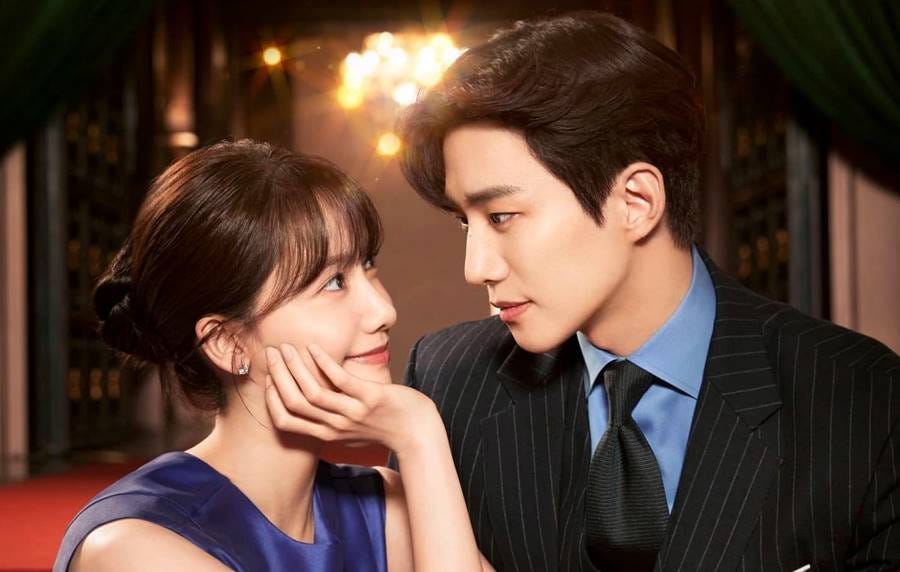
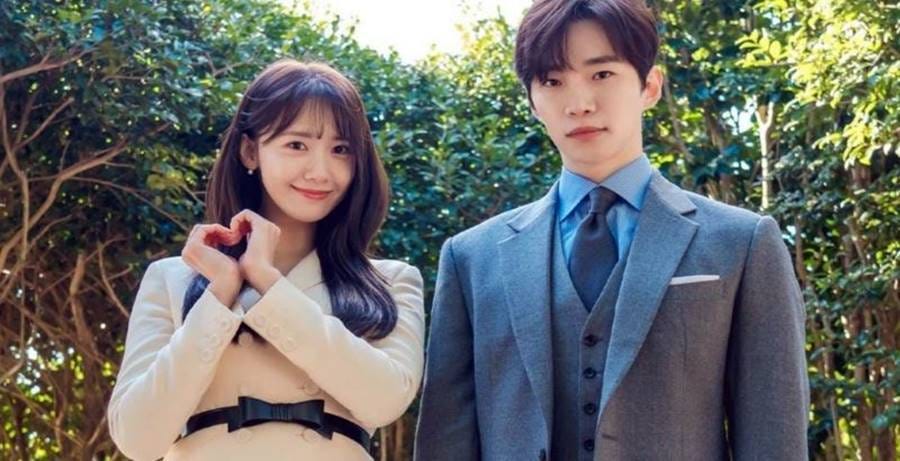
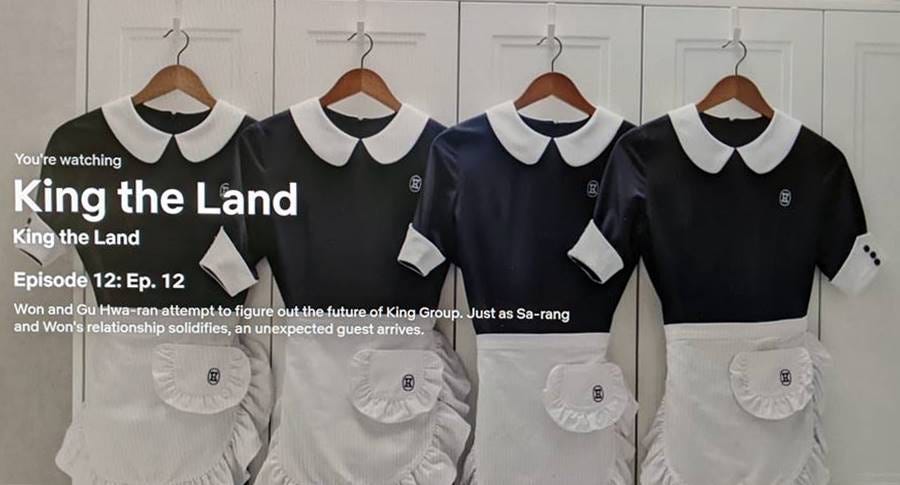
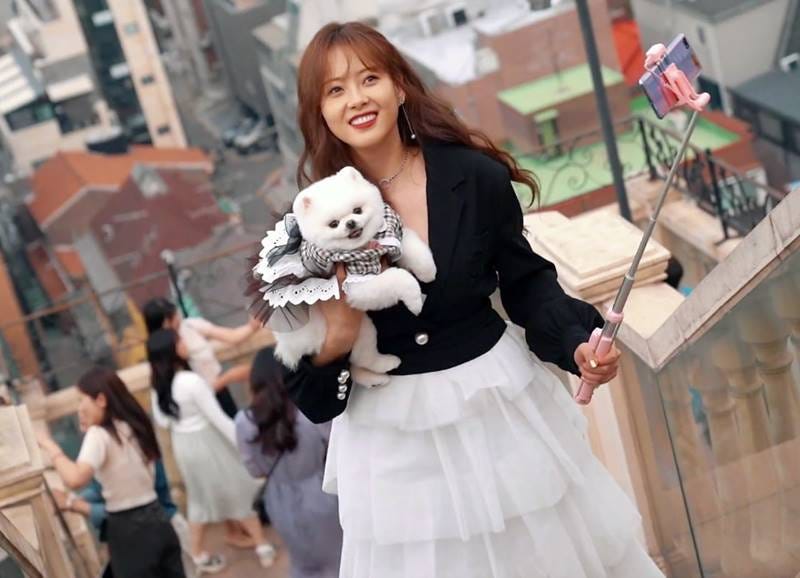
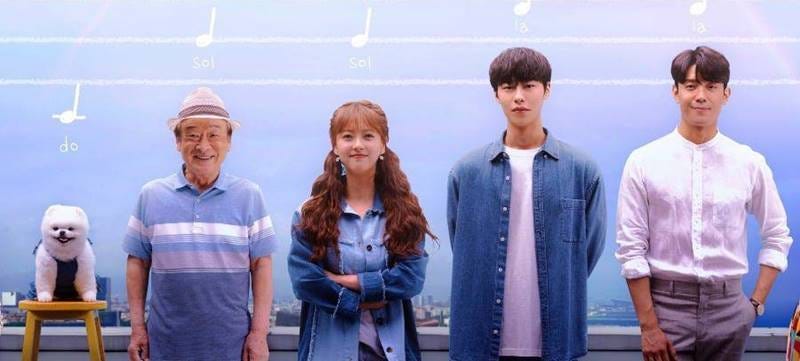
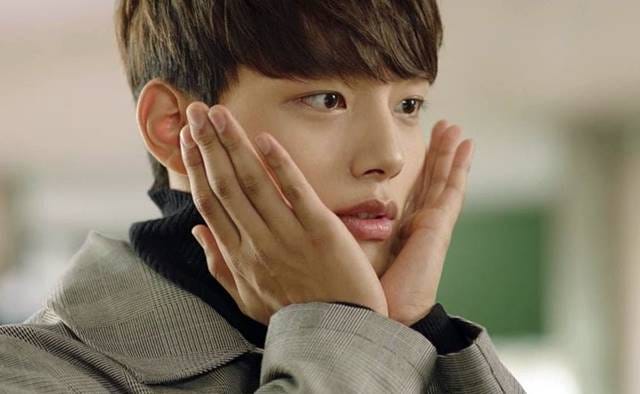
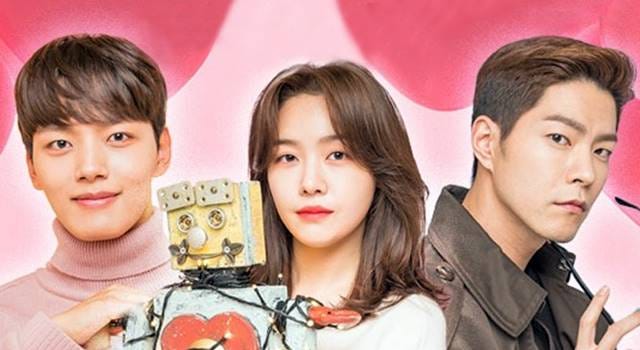
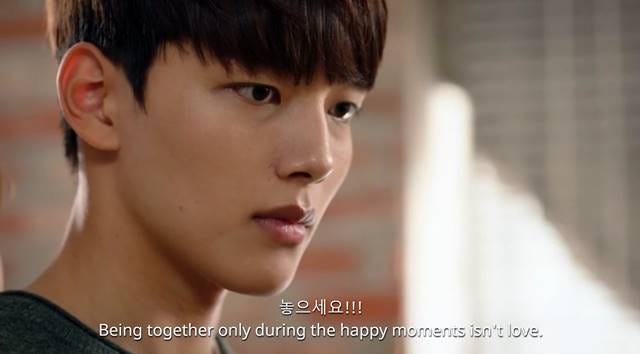
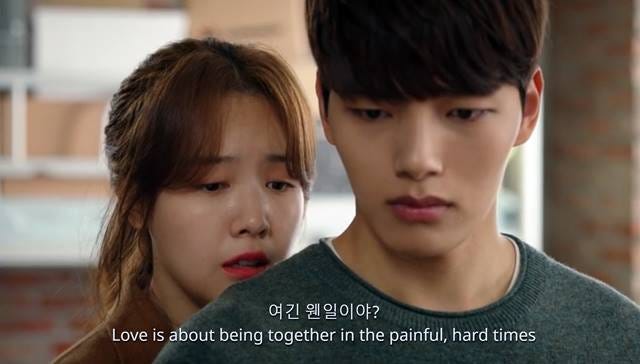
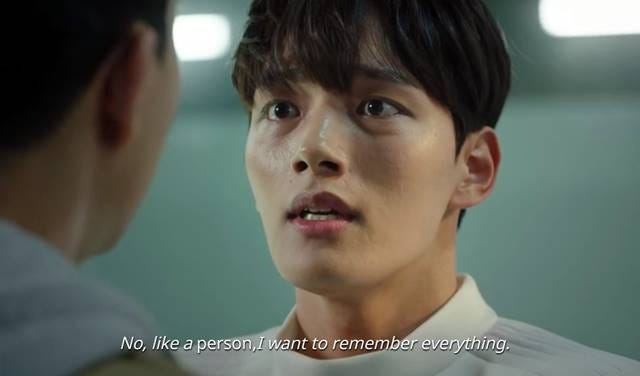
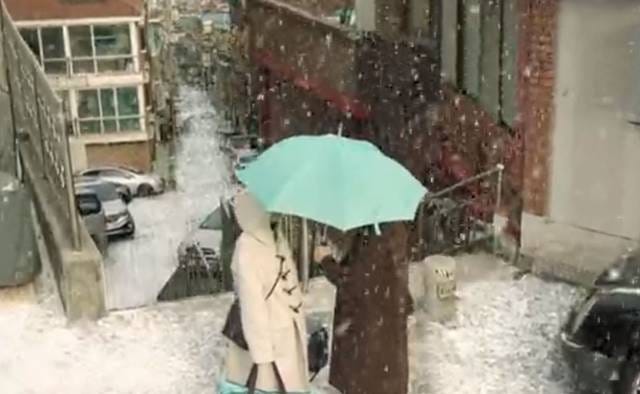
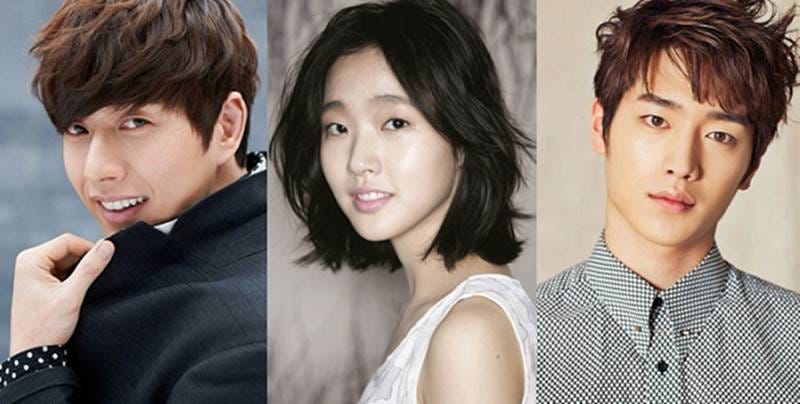
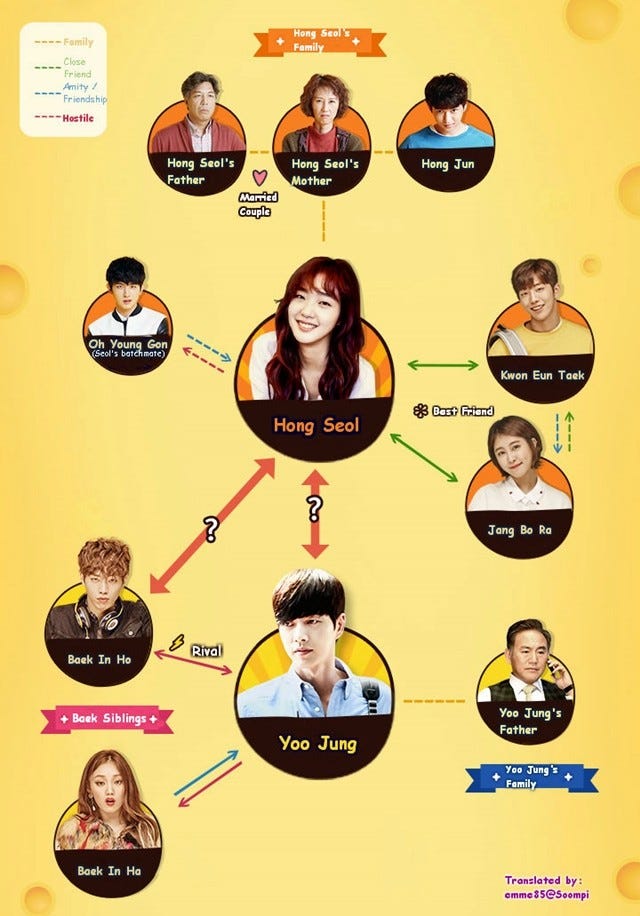
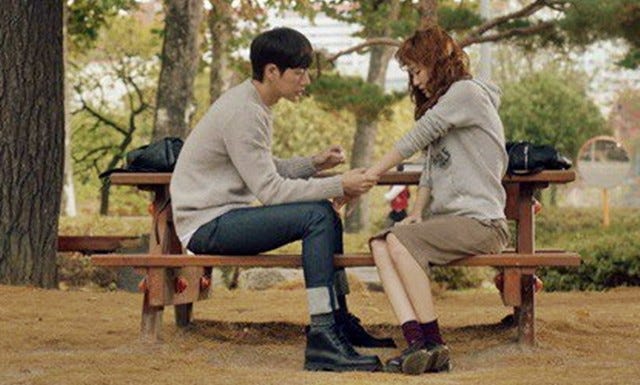
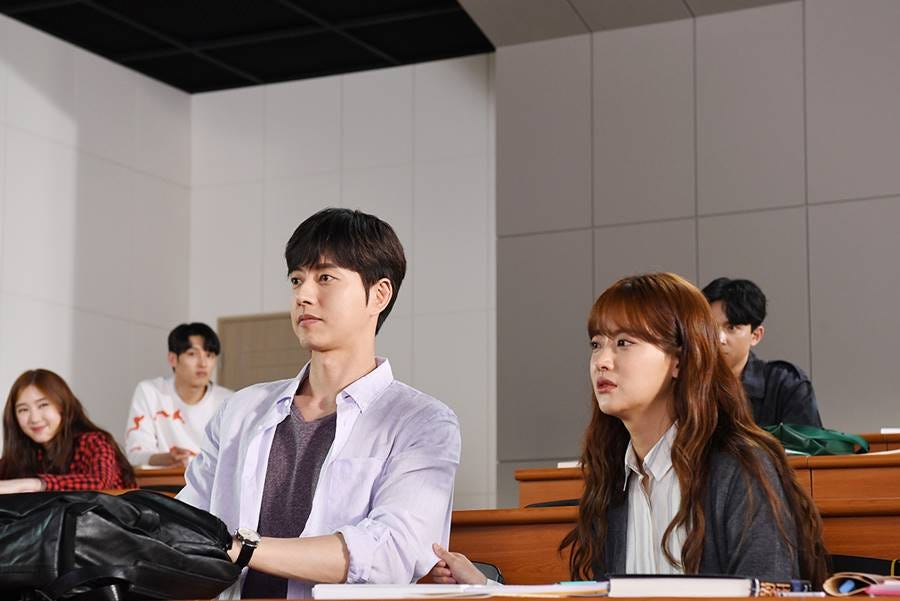
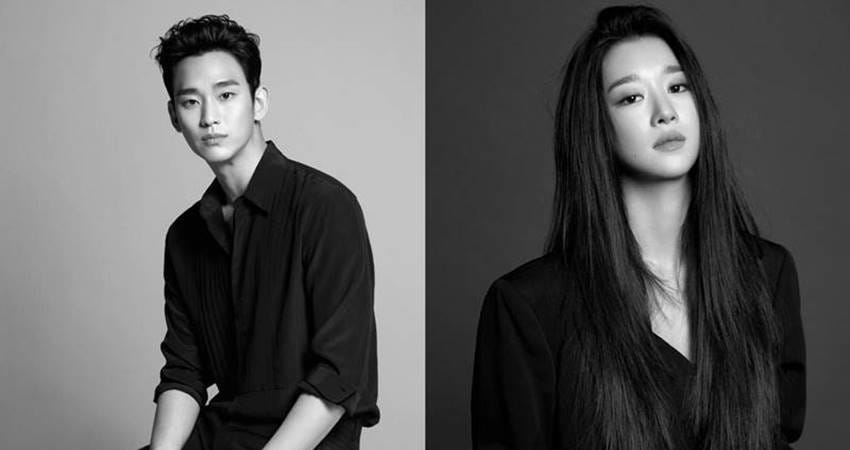
At first I thought King the Land was an awesome piece of fluffy rom com K-Drama, which is exactly what I need sometimes. Nothing heavy or thought provoking - just lovely people with good chemistry and good story I can consume easily at the end of a busy or stressful day. But then came episode 10 and suddenly Lee Jun Ho’s character said something that was super impactful for me. And I realized that one of the reasons I love K-drama so much is precisely because even the ones that are supposed to be fluffy almost always find a way to hit at some deep and satisfyingly painful emotional resonance.
Spoiler alert - In this case, Lee Jun Ho’s character is telling Im Yoo Ah’s character about how when his mom disappeared when he was little he was in anguish. But nonetheless, everyone around him wore a smile and he learned for the first time how a “smile can be monstrous.” Yes!
This short line finally got at something I have been trying to explain to people for a long time but many people don’t seem to get it. Positivity and well meaning sentiments like “it’s going to be okay,” or “everything happens for a reason,” or “you got this you’re so strong,” can really make someone inadvertently feel like their pain is not being seen or - even worse - something to be ashamed of or guilty about.
This line so beautifully expressed how this can become a second or third or three millionth trauma.
It also catalyzed for me one reason I find American TV so unsatisfying as it usually goes for sensationalism over emotional depth like this. The truth is, you can have awesome scenes of romantic intimacy and emotional depth at the same time!
Do you see a trend of more KDrama addressing real life issues? It feels like it was one out of twenty when I started watching in the mid 2000s. Now it seems to be one in ten.